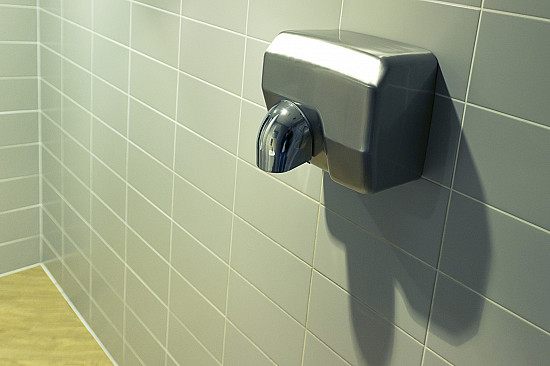Well I guess it’s back to the ol’ flappy-hands-jeans method for me
Oh shit, same dude
my old biochem teacher would feel very validated by this lol
I don’t understand the point of studies like this other than to fuel the anxieties of germophobes. Does anyone really believe this is causing any adverse health effects?
Petri dishes exposed to bathroom air for two minutes with the hand dryers off only grew one colony of bacteria, or none at all. However, petri dishes exposed to hot air from a bathroom hand dryer for 30 seconds grew up to 254 colonies of bacteria (though most had from 18 to 60 colonies of bacteria).
Is there any good news from this study? Well, the vast majority of the microbes that were detected do not cause disease in healthy people, with the exception of Staphylococcus aureus. Some of the bathroom bacteria, such as Acinetobacter, only cause infections in people in the hospital, or in those with weak immune systems. The others that were found are relatively harmless.
It could. The only way to know is to perform studies. There are approximately 10 million people in the US who count as immunocompromised, and they really could be harmed by a blast of bathroom bacteria.
Most facilities may not care, but I imagine stuff like this is of great interest to hospitals.
i dont know, i guess thats why they are studying it
Brought to you by the paper industryEspecially if we’re talking about the newer ones from Dyson et al that have filters in them.I couldn’t find the affiliation originally, but this does appear to be an independent study.
You can see the affiliations of the authors in the original study, they are only associated with their universities and medical facilities. They also tested a handful of dryers before and after being fitted with HEPA filters.
Therefore, we compared bacterial recovery from five hand dryers before and after retrofitting the dryers with HEPA filters. While bacterial recoveries prior to HEPA filter retrofit were comparable to those seen in previous experiments, bacterial counts at 9 days after HEPA filter retrofitting were reduced ∼4-fold, and this difference was significant (P < 0.001) (Table 2; note that for the hand dryer data in Table 1, air exposure was 30 s whereas it was 1 min for the data in Table 2). Thus, the HEPA filter retrofit reduced, but did not eliminate, microbe deposition by hand dryers.
Ultimately this is an important pilot study, but more studies are needed. This information is particularly important for immunocompromised people who may not know the best way to avoid illnesses when in public bathrooms. Also, many places do not have the HEPA filtered dryers and may not upgrade to HEPA filters for a long time.
Prove it





